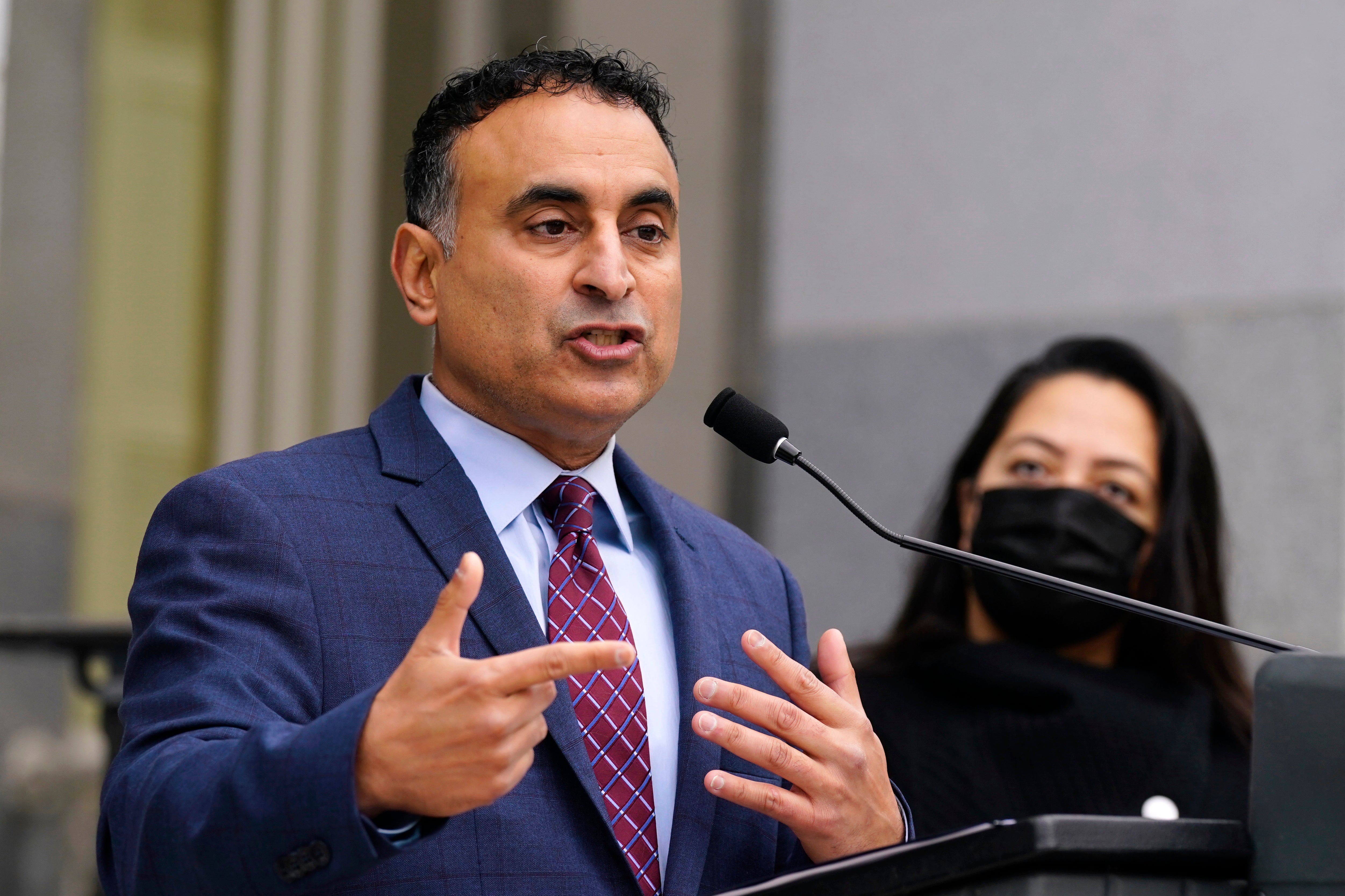California could have had universal healthcare — then we chose not to even try
Californians like me are bitterly disappointed by the attitudes of other Democrats, who say universal healthcare is possible in our lifetimes while at the same time deciding not to bring a bill like this to a vote

Your support helps us to tell the story
From reproductive rights to climate change to Big Tech, The Independent is on the ground when the story is developing. Whether it's investigating the financials of Elon Musk's pro-Trump PAC or producing our latest documentary, 'The A Word', which shines a light on the American women fighting for reproductive rights, we know how important it is to parse out the facts from the messaging.
At such a critical moment in US history, we need reporters on the ground. Your donation allows us to keep sending journalists to speak to both sides of the story.
The Independent is trusted by Americans across the entire political spectrum. And unlike many other quality news outlets, we choose not to lock Americans out of our reporting and analysis with paywalls. We believe quality journalism should be available to everyone, paid for by those who can afford it.
Your support makes all the difference.Dear California, we love you but, well, we are disappointed in you. California had the potential to shine this week with a bill (AB1400) which would be a triumph for anyone who believes healthcare is a human right. It could have been a pivotal moment in American history.
Sadly, with California Democratic Assemblymember and bill writer Ash Kalra (San Jose) citing a lack of confidence for the needed votes to pass if it went forward, this ray of hope was short-lived.
Benefits outlined for “CalCare”, the state’s colloquial name for the desired healthcare overhaul, outlined in Chapter Four of AB 1400 promised key components that included mental health, oral health, hospice care and many more medical benefits “for the maintenance of health or for the prevention, diagnosis, treatment, or rehabilitation of a health condition” under a single-payer system.
Kalra was one of three California Assemblymembers to introduce California Assembly Bill 1400. California Assemblymember Miguel Santiago (D-Los Angeles) and Assemblymember Alex Lee (D-San Jose) were part of the team which, in their bill named “Guaranteed Health Care for All”, represented something huge. If California had successfully passed this through the legislature, it would have become the first official full state with universal healthcare. Vermont attempted the same back in 2011 but also failed in its mission. There is currently only one city — sadly not joined by the rest of its state — in the United States that has anything resembling universal healthcare: Libby, Montana.
The failure to bring the California bill to vote has led to mixed emotions. Jeremy B White of Politico tweeted: “Bigger picture: Single-payer failing to get a majority vote in a chamber where California Democrats had 16 votes to spare, in a state where Democrats overwhelmingly are in charge, is not a great augur for national #MedicareForAll push.”
Former Majority Leader of California State Assembly Ian C Calderon thought differently, stating: “I’d argue passing/implementing single-payer and it failing in CA would have a larger negative impact on fed action and the policy as a whole. This adds pressure on feds to act. This needs to be implemented nationally.”
Left-leaning commentator Hasan Piker cautioned that allowing the bill to go forward, only to ultimately fail, would damage the cause of universal healthcare irreparably. Back in December of 2020, Piker stated, “I personally think that getting Democrats on the record to openly say no to Medicare for All in the middle of a pandemic isn’t a good look for Medicare for All at all. It won’t destroy the Democratic party like you think it is. Many of these Democratic politicians are not going to be scared into voting yes because there’s too much public pressure. It’s only going to make Medicare for All look worse.”
Perhaps this is the fate Ash Kalra wanted to avoid. But it’s hard not to feel disappointed. I fear that this lack of a backbone by my state’s leadership is just another example of how the current political system fails America. It’s difficult to see how shutting down the conversation about universal healthcare entirely in the state where it was most likely to be had can really be called progress.
I envy the optimism of some of my fellow Democrat voters and leaders, who claim that universal healthcare is possible in our lifetimes, but in the same breath defend the act of not even trying to pass a bill like CalCare. If we can’t even hope to get this to pass in a global pandemic here in blue California, why would we even think it to have a chance to sweep across the rest of the country?
Join our commenting forum
Join thought-provoking conversations, follow other Independent readers and see their replies
Comments